Ilya Suzdalev, a journalist, producer, and head of the representative office of the Belsat TV channel in Ukraine, as well as the coordinator of the Journalistic Solidarity Centers of the National Union of Journalists of Ukraine, became a forced evacuee twice over eight years. In the hot August of 2014, unmarried Ilya bid farewell to his hometown Donetsk. The city had been taken by Russian military forces, and an atmosphere of “russian spirit” and danger permeated the air. Then, in the cold February of 2022, Ilya urgently rescued his wife and son from Irpin. It was from the same russians who were bringing the “russian world” to Ukrainians by using tanks.
…At 4:51 AM, Irpin trembled from explosions, and a new countdown for life began.
“A mine exploded right under our window.”
— On February 24th, I decided to take my wife and my little son to the border with Poland to go to my mother in Prague. I planned to return and manage things here alone,— Ilya begins his story. — But things didn’t go as I had planned.
Upon returning to Irpin, Ilya learned that he could not return to his home. Russian occupiers heavily bombarded the city, and to make matters worse, all the bridges connecting the city were destroyed. The journalist had to stay with friends in Khmelnytskyi. He had initially planned to stay for a day but remained for a month. Throughout this time, Ilya tried to save his two cats. His family had left them at home, hoping that Ilya would be able to rescue them later on.
— So, my cats endured the occupation of Irpin in an empty apartment. Of course, there was a lot of criticism when I wrote on Facebook and asked for help, inquiring about possibilities. People wrote things like, ‘Oh, the scoundrel left his cats and went away.’ I hadn’t planned to leave. But on the 24th, when planes flew over my house in Irpen, and you could see explosions right outside the window, you could see the airport in Hostomel burning, I evacuated my family and planned to return. I didn’t even gather my belongings: I took my laptop, underwear, socks – that’s it. I couldn’t imagine it would all happen so quickly,— Mr. Suzdalev says.
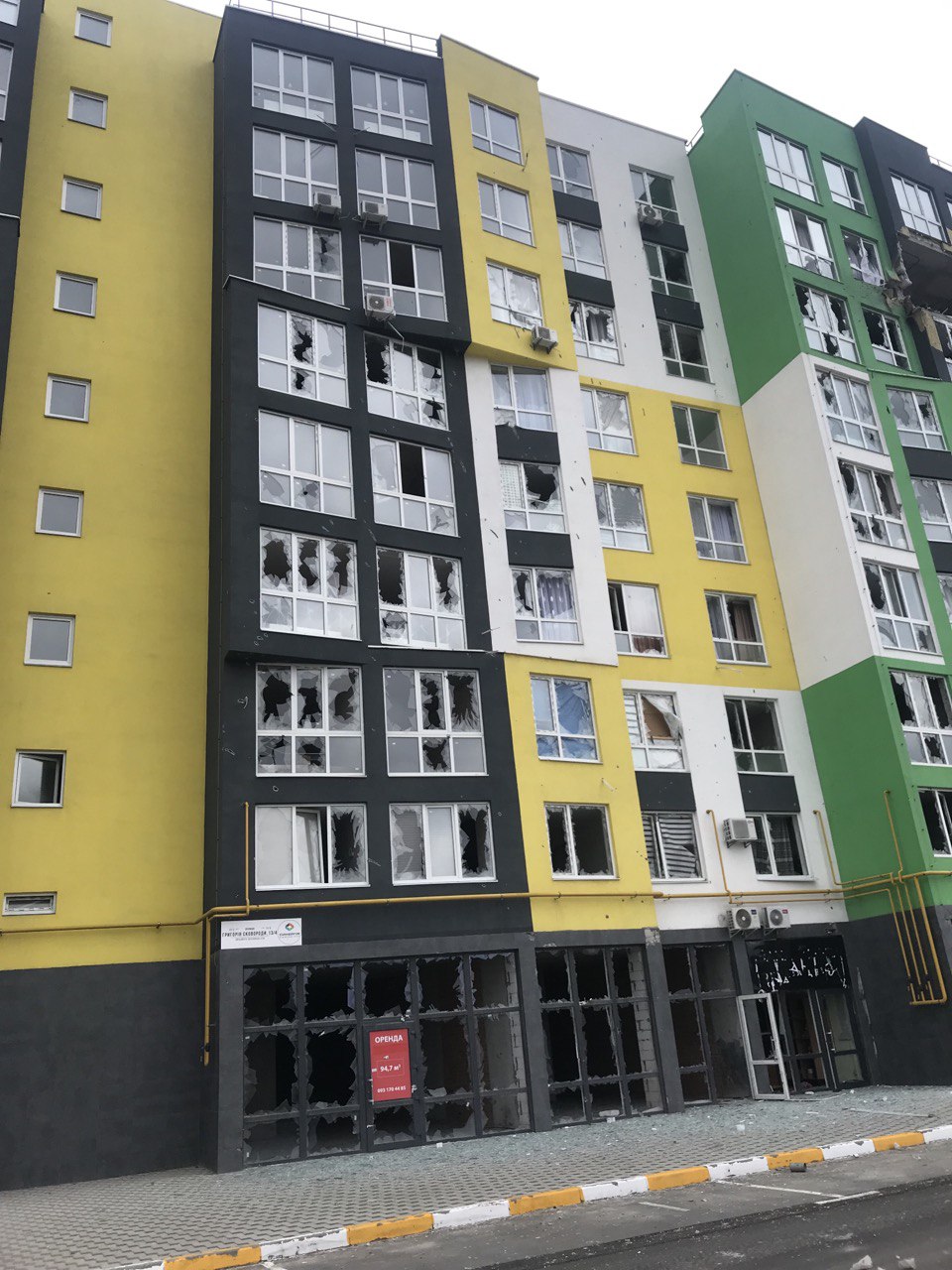
During the early days of Ilya’s evacuation, his neighbors cared for his cats. Before leaving, Ilya introduced himself to these neighbors and left them his apartment keys. Being fellow cat lovers and having relocated from Donetsk, they were more than willing to help. Unfortunately, their availability ended on March 5th, causing uncertainty about the cats’ future. While Ilya hoped the neighbors would care for the cats, they unexpectedly had to leave in a car with over ten people, leaving no room for the feline companions. Nevertheless, they ensured the cats had sufficient food and water.
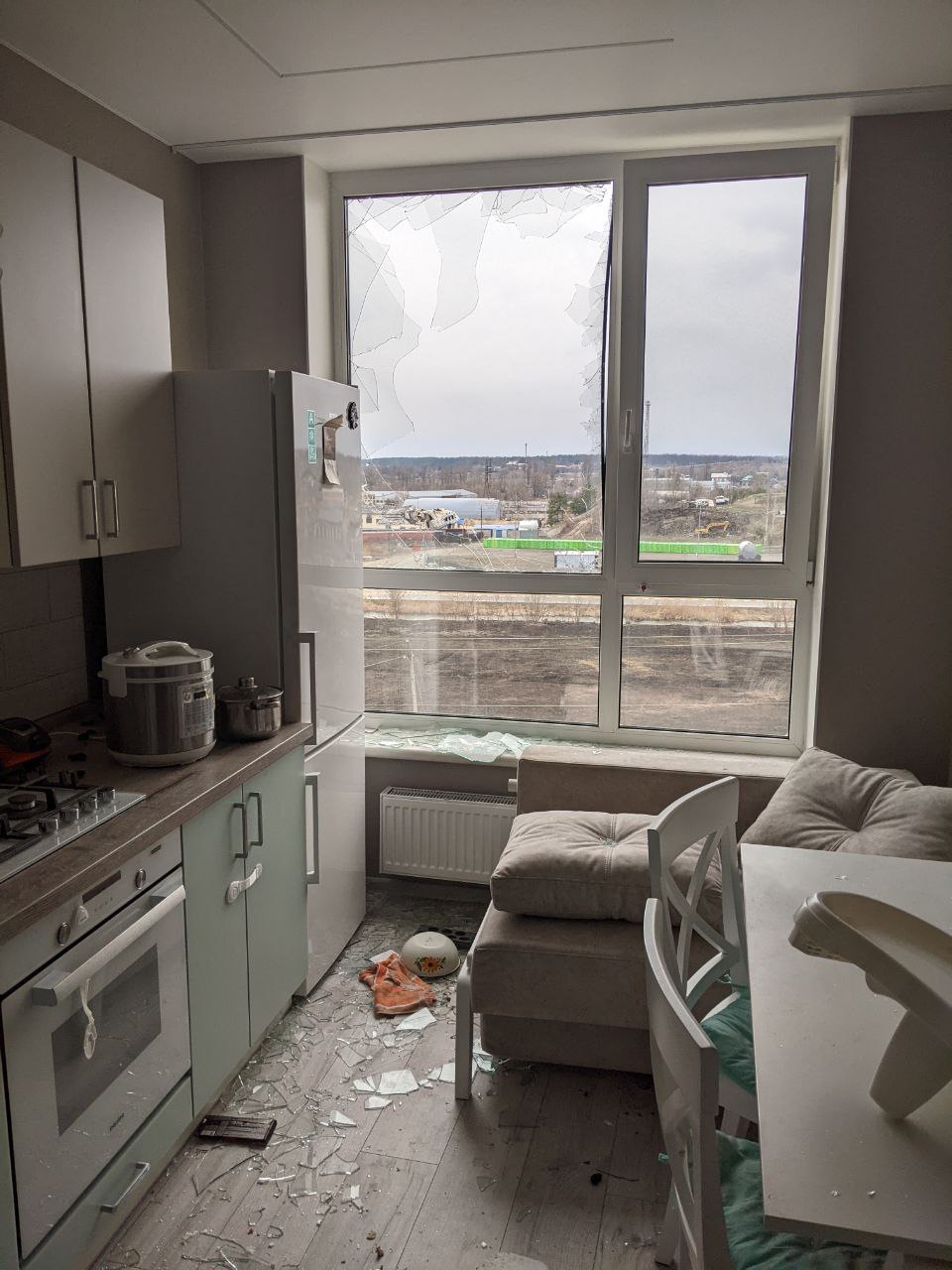
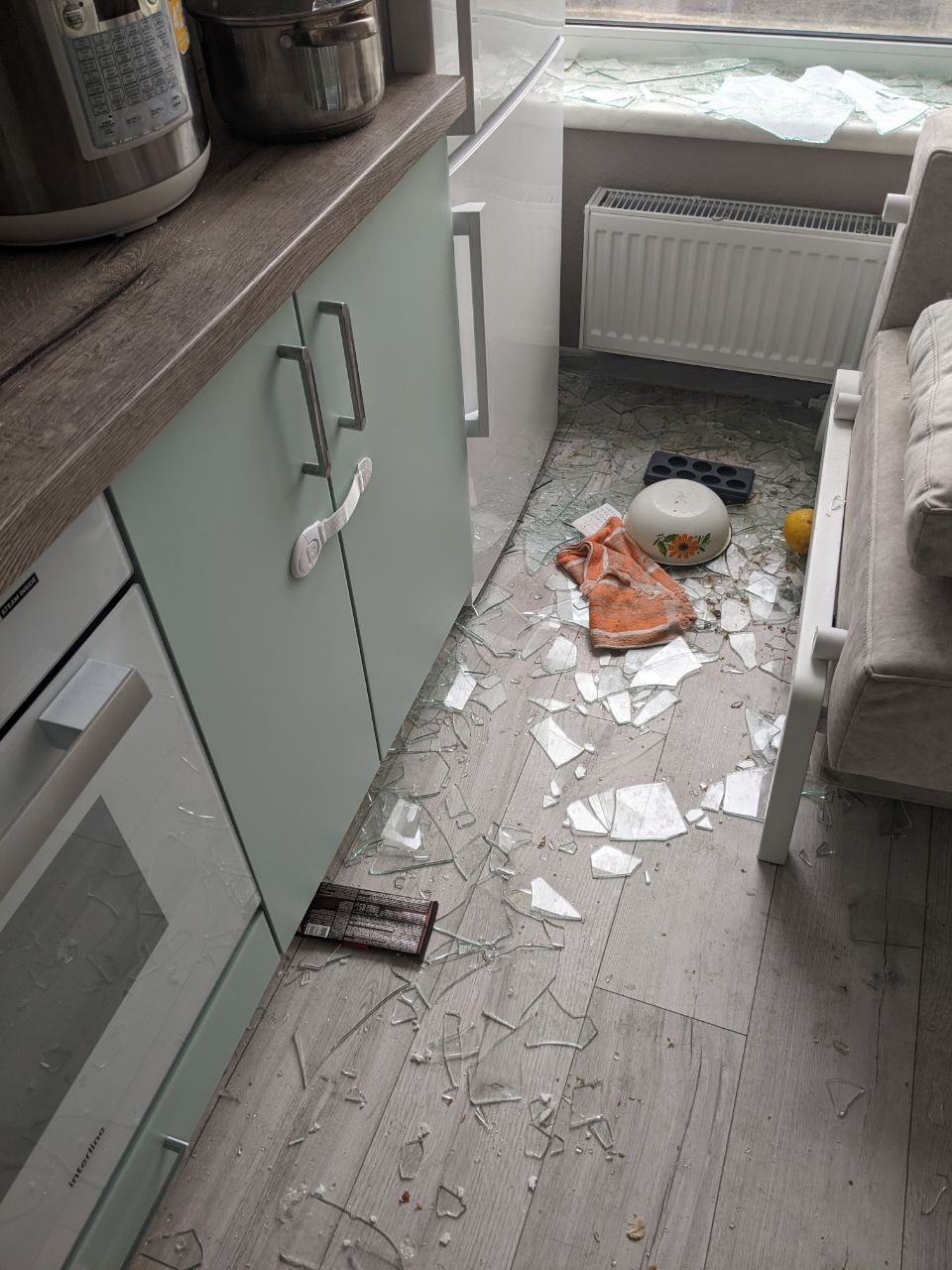
— Our apartment was hit by a mine right under the window. The windows were shattered, debris hit the bedroom ceiling, and the kitchen floor was damaged. The battles were happening literally in the field just outside our window. Driving through the city, you can see how our neighborhood was affected. It was the beginning of March, and it was cold. But it was on March 5th that the windows were blown out… The Russians were shooting at residential buildings from tanks. A shell hit an apartment in the neighboring entrance. And with battles going on, no one could travel… Saving people was difficult—no one would think about other people’s cats! I began researching online about how long cats can endure without water or food. I realized there was a potential two or three weeks’ worth of sustenance available— Ilya recalls those days.
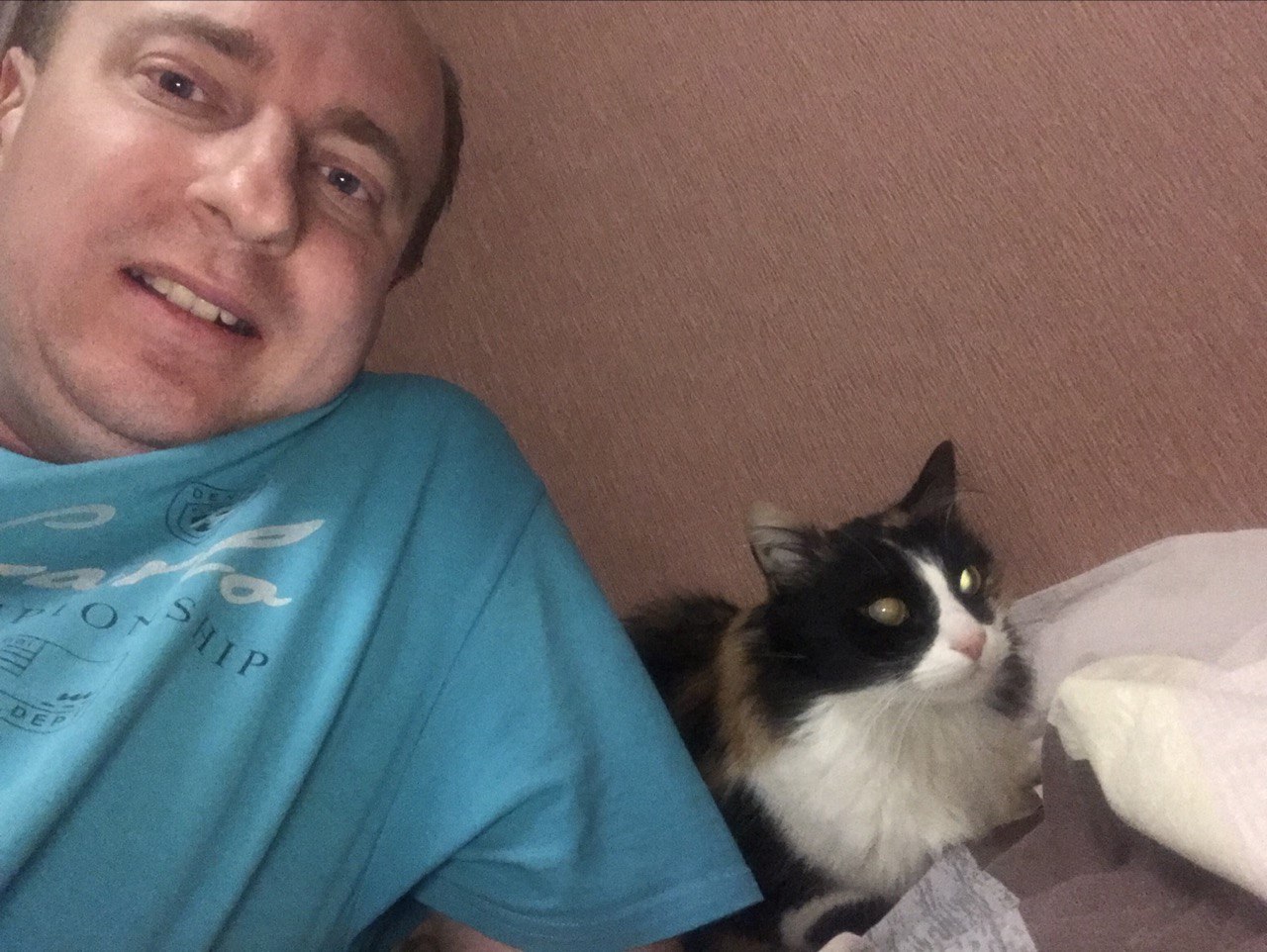
“We Went to Irpin and Were Shocked”
As his family remained safe, Ilya’s thoughts were fixated on his cherished pets. Concentrating on daily activities is hard when your beloved companions are at risk. Once Irpin was liberated, Ilya rushed back home, even though it was early April, and the cats’ chances of survival were minimal. Additionally, civilians were barred from the city, but Ilya’s journalist credentials secured his entry.
— We went to Irpen and were shocked,— the journalist recalls. — Everything was smashed… It felt like I was in Prypiat (Chornobyl). No people, no life. But there was no time to look around, straight to the apartment. I found the first cat, Lina, behind the curtain in the room. The door was shut, likely due to the force of the explosion. We couldn’t find Kashtan; I thought he might have jumped out. We looked for him outside.
The Suzdalev family adopted both cats from a shelter. So, while these animals had already dealt with stress, it wasn’t as intense as this situation. Lina was rescued, but what about Kashtan? Ilya felt guilty because he had assured the cats, especially Kashtan, on the morning of February 24th, as he was getting his son Mark ready, that he would come back.
— You know, when I was leaving, he looked at me… I close the door, and he’s sitting there, looking at me with one eye—he’s injured, that’s how he was taken from the shelter. I told him: wait, I’ll be back,— the journalist shares.
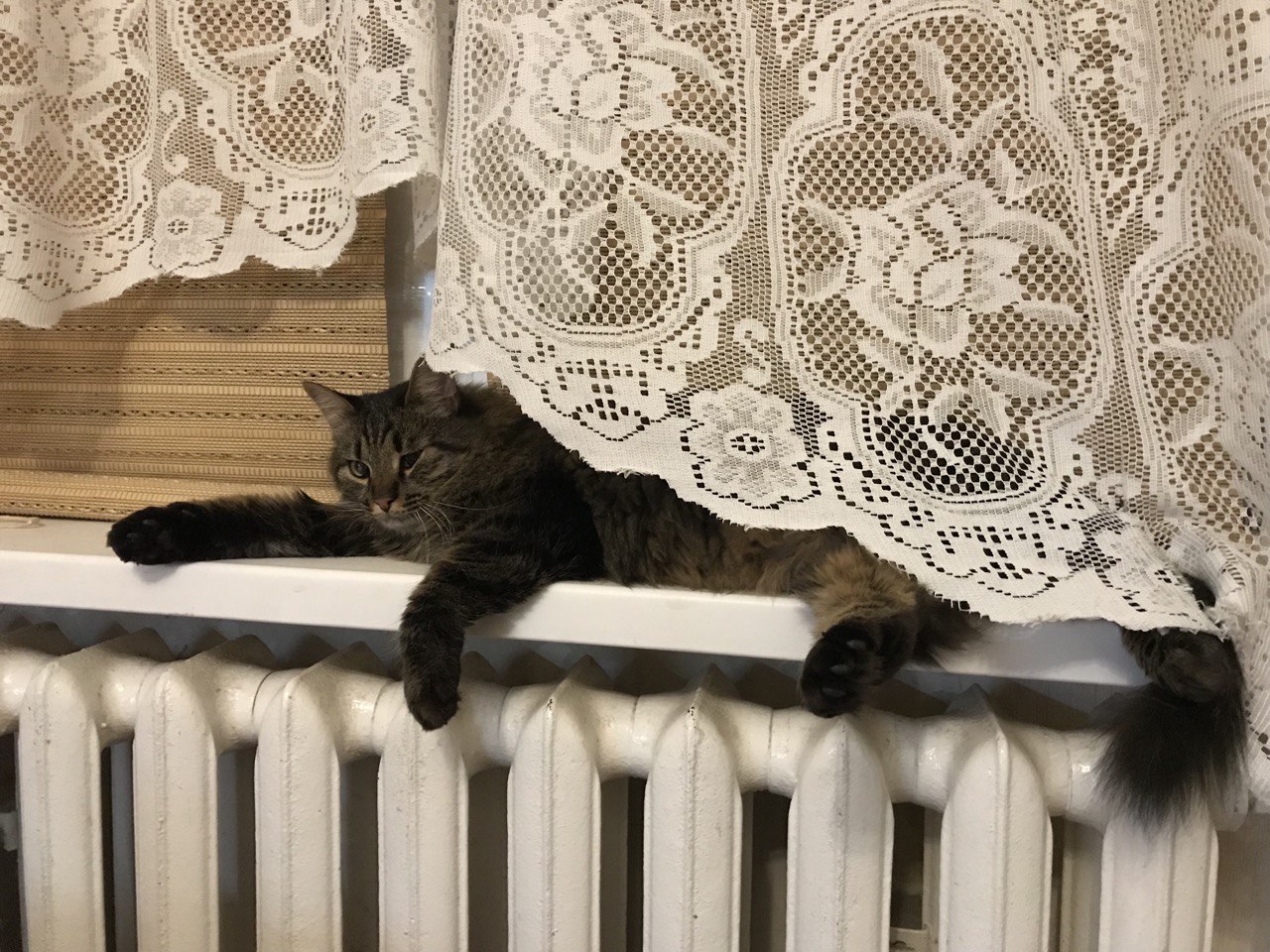
The next day, Ilya returned to Irpen. And he saw that the bowl of water he had left the day before was empty! Kashtan had hidden deeply under the bathtub. Ilya even had to break the tiles to get him out.
— They were very skinny, tired, and exhausted. And they missed us. The first night, Kashtan didn’t leave my side. He was lying on the pillow with me. I turned to the other side, and he circled around and lay in front of my face—he wanted to be with me,— Ilya said with a heartfelt smile.
Now, the cats are safe because their owner is with them even when alarms sound and rockets fly, their owner is with them. Ilya’s wife and son have returned from abroad, but only temporarily. Due to blackouts and frequent shelling, they had to evacuate the child again.
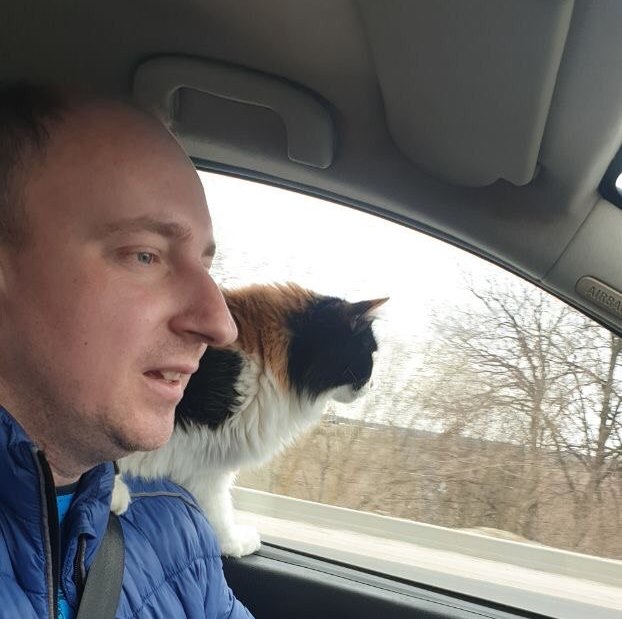
— It’s not good that among the first words the child learned after ‘mom’ and ‘dad’ was the awful word ‘tu-ho-ga'”— “tryvoha” (eng.-alarm). The child walks around the apartment saying, ‘tu-ho-ga tu-ho-ga.’ There are no proper shelters here; the nearest one is in the neighboring neighborhood,— the journalist explains his concerns.
“Journalist Evacuees Had the Same Need: A Place to Sit and Put Their Laptop. That’s How the Network of Journalistic Solidarity Centers Was Born”
The cats are in the process of recovering from their traumatic experience. They remain anxious around loud sounds and unfamiliar faces, fearing solitude once more. Following their rescue from the vacant Irpin apartment, they’ve faced numerous challenges alongside Ilya, forming an unbreakable bond. Ilya, a journalist and producer, dedicated months in Chernivtsi to contribute to developing Journalistic Solidarity Centers. These centers, established by the National Union of Journalists of Ukraine, offer aid to journalist evacuees and are operational in six cities across Ukraine:
— In Chernivtsi, I found a place where I could work. Journalist evacuees had the same need: a place to sit and put their laptops (and the opportunity to use technology). That’s how the idea of the network of Journalistic Solidarity Centers first emerged, and then the project itself,— our interviewee explains.
Now, Ilya oversees the work of all the journalist hubs in the country. These NUJU centers provide workplaces, financial support, equipment, and psychological and legal assistance. They provide all journalists who go to the front lines to cover combat operations with bulletproof vests, helmets, and first aid kits.
Moreover, much of how events in Ukraine are seen by viewers in Poland and around the world depends on Ilya. He’s the head of the representative office of the Belsat channel. His work now serves as a consolation (after the cats). His family is far away, and he eagerly awaits Victory to finally embrace his beloved wife and little son. He dreams that his son will never have to say the word “alarm.”
This series, titled Executed Free Speech, is created as part of a project Drawing Ukrainian And International Audience’s Attention To Serious Violations Of Human Rights And Crimes Against Journalists And Mass Media By The Russian Federation, which is performed by the National Union of Journalists of Ukraine, with support from the Swedish non-profit organization Civil Rights Defenders.
JOURNALISTS ARE IMPORTANT. Stories of Life and Work in Conditions of War is a cycle of materials prepared by the team of the NUJU with the support of the Swedish human rights organization Civil Rights Defenders.
#CRD

 THE NATIONAL UNION OF
JOURNALISTS OF UKRAINE
THE NATIONAL UNION OF
JOURNALISTS OF UKRAINE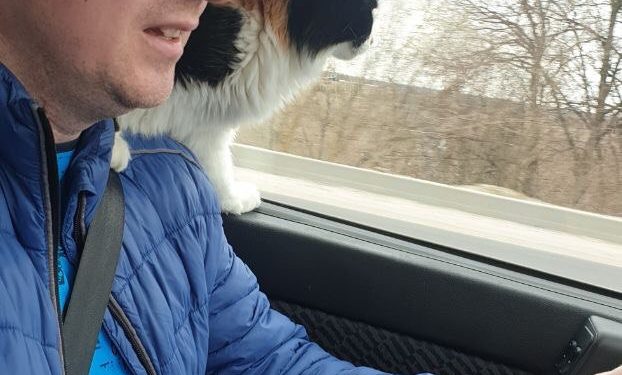
















Discussion about this post